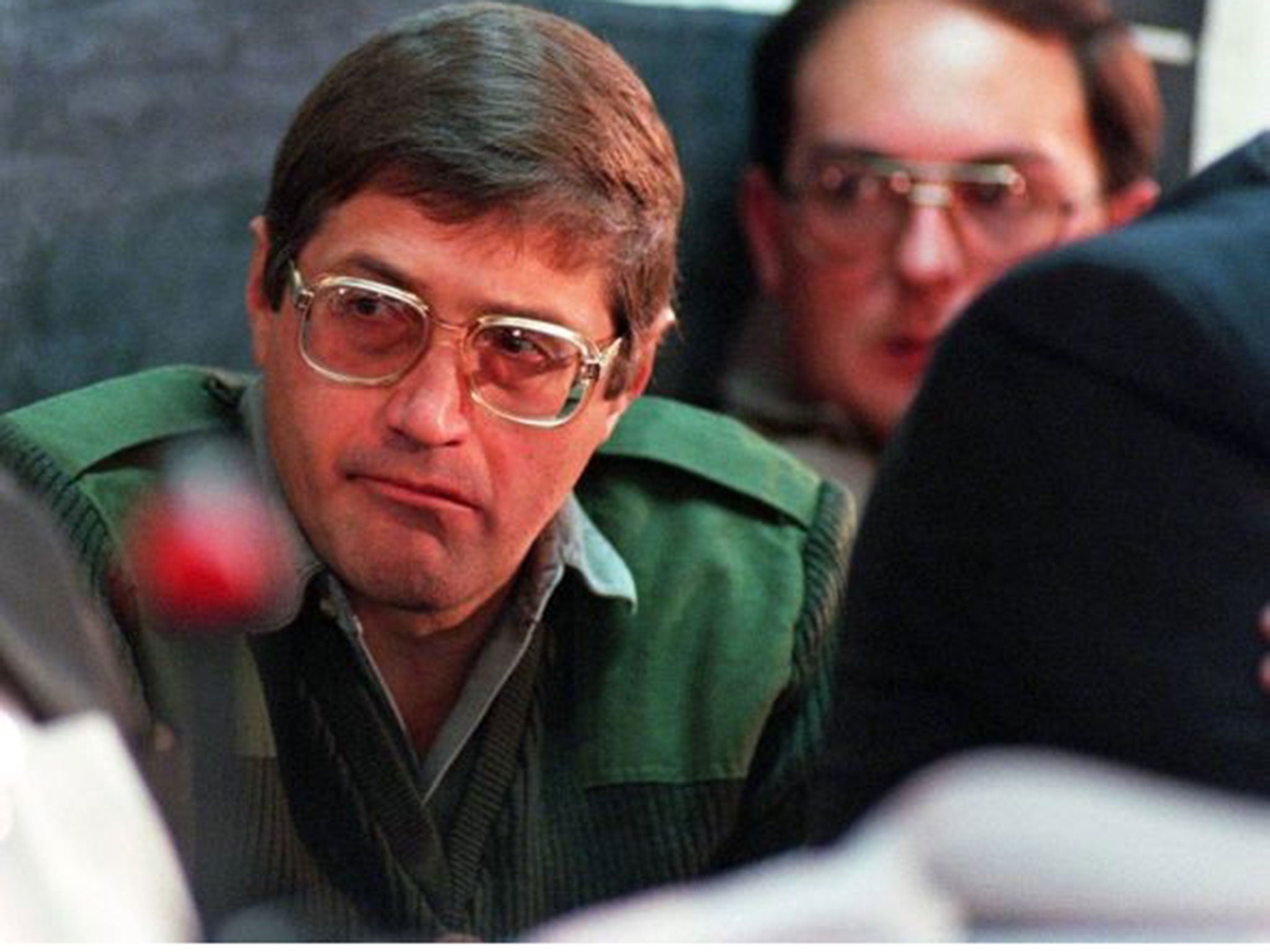Eugene de Kock denied parole: Known as 'Prime Evil', killer of South African apartheid-era black activists has been in jail since 1994
De Kock confessed and was sentenced two life terms plus 212 years

Your support helps us to tell the story
From reproductive rights to climate change to Big Tech, The Independent is on the ground when the story is developing. Whether it's investigating the financials of Elon Musk's pro-Trump PAC or producing our latest documentary, 'The A Word', which shines a light on the American women fighting for reproductive rights, we know how important it is to parse out the facts from the messaging.
At such a critical moment in US history, we need reporters on the ground. Your donation allows us to keep sending journalists to speak to both sides of the story.
The Independent is trusted by Americans across the entire political spectrum. And unlike many other quality news outlets, we choose not to lock Americans out of our reporting and analysis with paywalls. We believe quality journalism should be available to everyone, paid for by those who can afford it.
Your support makes all the difference.The former head of a South African covert police unit that tortured and killed dozens of people during white minority rule was denied parole because the families of his victims were not consulted, the government said on Thursday.
Eugene de Kock, who confessed to murder and other crimes and was sentenced to life in prison, has been in jail since the end of apartheid in 1994 and his previous parole requests were turned down. De Kock's case is particularly sensitive in a country where efforts to reconcile at the end of white rule troubled some who thought more apartheid-era enforcers should have been punished.
Michael Masutha, the minister of justice and correctional services, said the law requires victims' families to express their views about parole and he confirmed that had not happened when he met relatives on 4 July to discuss de Kock's fate.
“It is fair and in the interests of the victims and the broader community that the families of the victims are afforded the opportunity to participate in the parole consideration process of the offender,” Masutha said at a news conference. De Kock's case can be reviewed again within a year, instead of the usual 2-year time frame, he said.
“I've noted the progress he is reported to have made to improve his skills while in custody as well as the assistance Mr. de Kock is said to have provided and continued to provide” to authorities investigating missing persons cases, Masutha said.
De Kock, known as "Prime Evil", confessed to crimes and was sentenced in 1996 to two life terms plus another 212 years. In his parole application, he said he is the only member of the former police force serving time for crimes committed on behalf of South Africa's old order and maintains he acted on instructions from leaders who were never punished.
“Not one of the previous generals, or ministers who were in Cabinet up to 1990, have been prosecuted at all,” he said in an affidavit signed in January.
Now 65, de Kock cooperated in the 1990s with South Africa's Truth and Reconciliation Commission, which recommended amnesty to some who recounted wrongdoing during apartheid and showed remorse. The goal was to promote reconciliation by allowing the cruelties of the past to be examined and to encourage victims to face repentant human rights violators and seek closure.
De Kock was pardoned for some crimes, but was convicted on murder and other charges linked to his role as head of the secret C10 police unit stationed at Vlakplaas, a farm west of Pretoria, the capital.
AP
Join our commenting forum
Join thought-provoking conversations, follow other Independent readers and see their replies
Comments